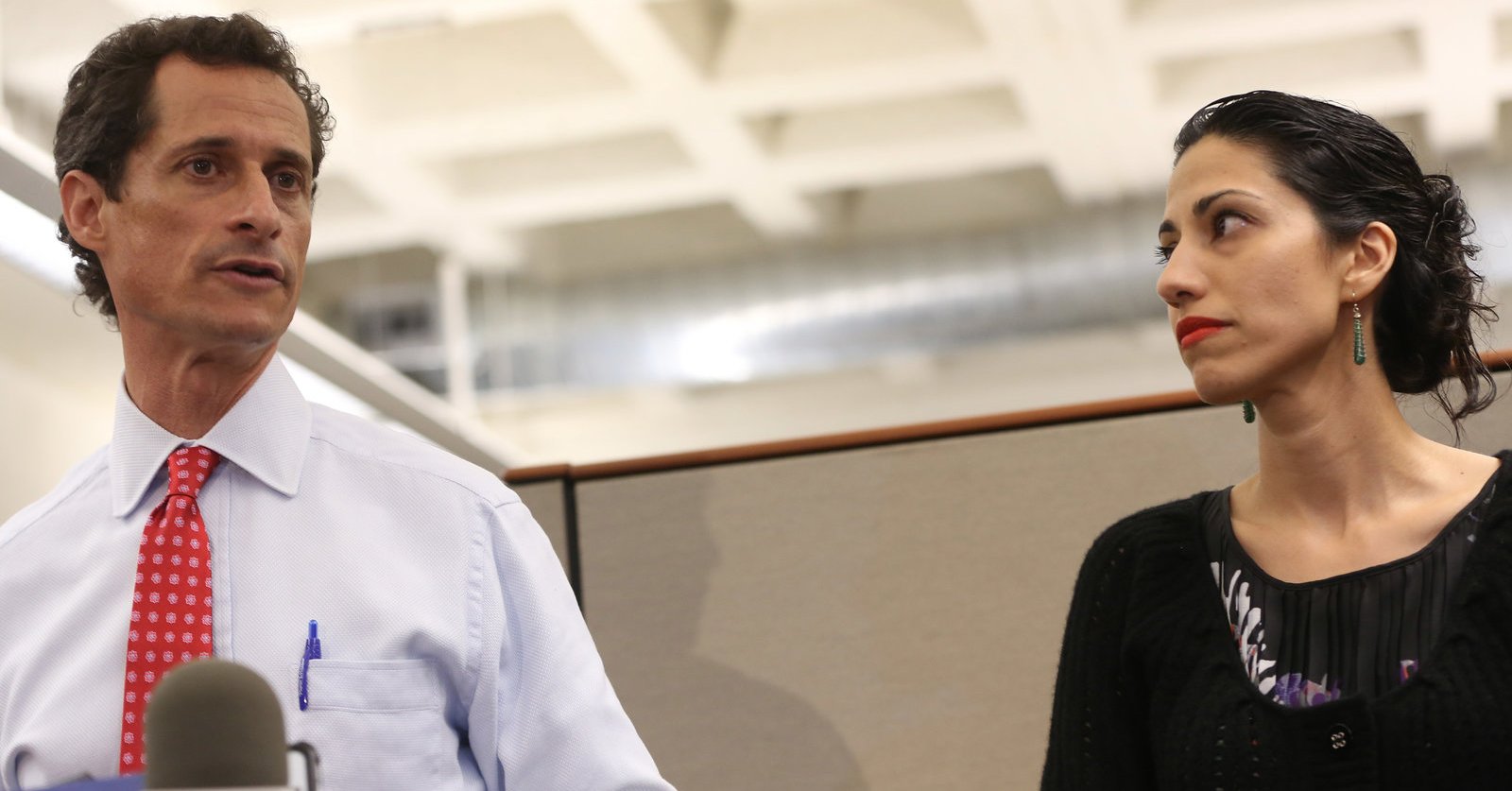The electorate is now witnessing a vivid example of this, arising from the separation of Anthony D. Weiner, a former congressman, and Huma Abedin, a top aide to Hillary Clinton. The F.B.I. is poring over their emails with a presidential election just days away.
Divorce lawyers and data analysts interviewed on Monday said less public versions of this story play out all the time.
“The problem is, once they’ve already engaged in bad behavior, it’s out there,” said John Slowiaczek, the president-elect of the American Academy of Matrimonial Lawyers. “You can’t recapture it, you can’t bury it.”
No matter a person’s level of technical skill, it can be difficult to hide digital behavior from a spouse, a spouse’s lawyers or, in Mr. Weiner’s case, federal investigators.
In August, Ms. Abedin, one of Mrs. Clinton’s closest aides and confidantes, informed her husband, a disgraced former congressman and mayoral candidate, that she wanted to separate after his latest sexting scandal. A federal investigation of Mr. Weiner revealed a trove of messages, including some belonging to Ms. Abedin.
Nancy Berg, the president of the International Academy of Family Lawyers and a partner at the law firm Berg, Debele, DeSmidt & Rabuse, said that it was not uncommon to see situations like that of Ms. Abedin’s, where, she said, “her husband’s garbage is destroying her life.”
In divorce proceedings, lawyers and investigators routinely mine public social media profiles for a glimpse into the activities of the client’s spouse.
But their investigations go far beyond that, as they sift through whatever data they can legally obtain for signs of hidden assets or to catch the spouse in a significant lie. Lawyers are likely more focused on questions of finance and child custody than lurid questions of adultery or betrayal.
Even so, a computer “tells you everything about a person’s character,” said Brook Schaub, a forensic analyst and licensed private investigator at the accounting firm Eide Bailly. It has “become the file cabinet, the stationery, the social networking, the everything,” he said.
The data that can become publicly available depends largely on the individuals’ penchant for privacy and how careful they have been. Even those who value privacy during the relationship are at risk of the former spouse finding sensitive data.
The first steps taken after the divorce process begins can be critical.
Christine Leatherberry, a family lawyer in Dallas, said she recommended that her divorce clients create a new email account, stop sharing calendars and turn off the ability for apps on their phones to track their locations.
Someone committed to finding embarrassing or otherwise discrediting information about a spouse can most likely find a way, especially if he or she is willing to flout the law. Such revelations may not be admissible in court, but they could bring professional ramifications or personal embarrassment.
Take, for instance, the security questions that most important digital accounts, including email and banking, use to recover passwords if forgotten. Identifying your mother’s maiden name or the street you grew up on might foil distant identity thieves, but not a spouse.
Annette Burns, a family lawyer in Phoenix, suggested concocting untruthful answers that you could remember but that no one else could guess.
Frank Rudewicz, a principal at Marcum L.L.P. of Boston who focuses on forensic practice, said people had gone so far as to install malware on a spouse’s computer that would log keystrokes.
But there are also fully innocent and legal ways that a spouse can gain access to what was thought to be private data, especially among those lacking savvy with their technology.
As an example, a text message could go simultaneously to a phone and an iPad that was left with children or a former spouse, something many people forget or don’t know, especially if they didn’t set the devices up themselves.
“It’s so convenient to have our texts pop up all over, and all of our computers synced,” Ms. Burns said. “But if one of those computers is left at home, that means your separated spouse has access to everything.”
Mr. Slowiaczek said that the trend of social media evidence in divorce cases had started between five and eight years ago and had picked up “dramatically” over the last three to five years.
He said evidence from social media was a “primary source for virtually anyone who has any divorce practice whatsoever, for getting information not only to understand our own clients, but also to understand the dynamics of people on the other side of a case.”
Mr. Schaub described a case he had handled in which a father who had been unemployed for several years had claimed that he had been acting as a “Mr. Mom.” His computer use revealed a different story.
”His activity during the day is not dedicated to doting on the kids, it’s sitting at the computer, doing various things,” Mr. Schaub said, whether that be viewing pornography or racking up debts on online poker sites.
Ms. Leatherberry said she did not recommend people who have filed for divorce delete photos, texts or social media posts, because that could be considered destruction of evidence. But people should be aware that lawyers introduce text messages and social media posts into almost all of their hearings and trials, she said.
“Anything they put in a text or an email or in social media, assume it will be blown up onto a poster board in a courtroom one day,” she said.
---------------------------
The Newyork times









 Home
Home Politics
Politics











